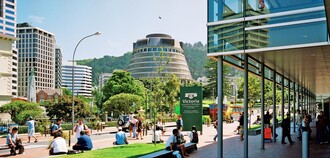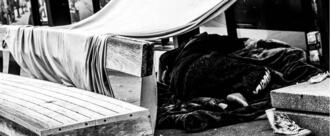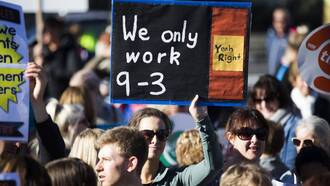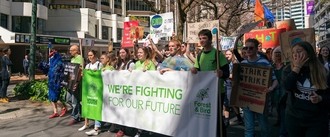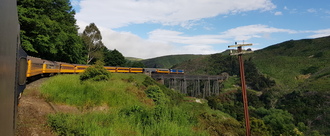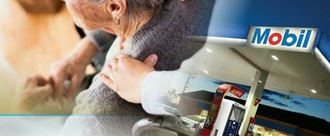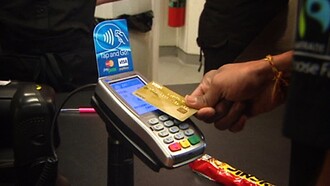-
Call for International Students' Fee RefundsIn response to COVID-19 Alert level 4, Victoria University of Wellington has announced that teaching will recommence online on 28 April 2020, and will continue ONLINE for the remainder of Trimester 1. 1) INTERNATIONAL STUDENTS PAY EXTREMELY EXPENSIVE FEES FOR THE FULL STUDENT EXPERIENCE, NOT ONLINE CLASSES It is unreasonable that the University continues to charge full tuition fees when all courses are being delivered online to the students, especially given the fact that international student tuition fees are extortionate, which is four times higher than the standard tuition fees. 2) ONLINE LEARNING IS LESS EFFECTIVE There is a growing concern amongst students that the online learning methods the University has adapted (due to the pandemic) are NOT as effective, especially when done independently from any form of face-to-face teaching. More specifically, International Students believe that the current online learning approach does not justify international students’ tuition fees. 3) LACK OF ACCESS TO FACILITIES As teaching recommenced online under Alert Level 3 and 2, students are unable to gain the full learning experience due to the lack of access to the University’s physical facilities, especially those enrolled in courses with practical components (such as campus library, studio classes, and laboratory sessions) will miss out on hands-on learning experiences. It is unreasonable for students to pay more than $4000 to study a course that carries out practical components entirely online. 4) LACK OF INTERNATIONAL STUDENTS’ EXPERIENCE IN NEW ZEALAND One of the most crucial factors is International Students also miss out on the international education experience unique to studying abroad as they are unable to interact and build connections with fellow students and academic staff from various backgrounds. 5) 30% FEE SCHOLARSHIP ELIGIBILITY SHOULD BE AMENDED In March, a 30% fee scholarship was offered to students who are studying at a distance in Trimester 1, or who were not able to commence study in Wellington on the first day of classes on 2nd March 2020 due to the travel ban. Since then, the situation has evolved significantly, and current border closures now affect all International Students who are in their home countries and are unable to return to New Zealand. The scholarship offer shows that the University recognise that the International Students are unable to get the full student experience in line with the fees that they have paid because of the restrictions put in place following the COVID-19 pandemic. Hence, it is reasonable to ask that this scholarship be extended to all International Students whose student experience has been impaired due to the crisis. This campaign is led by Victoria University of Wellington International Students' Association (V-ISA) Endorsed by 1) Wellington Singaporean Students' Association (WESSA) 2) Victoria University of Wellington Chinese Students' Association (CSA) 3) Victoria University of Wellington Thai Students' Association (TSA) 4) Myanmar Students' Association at Victoria University of Wellington (MSA) 5) Victoria University of Wellington Japanese Students' Society (JSOC) 6) Wellington Malaysian Students' Organisation (WMSO) 7) Victoria University of Wellington Taiwanese Students' Association (WTSA) 8) Victoria University Sri Lankan and Indian Club (VICSLIC) 9) Vietnamese Students' Association in Wellington (VSAW) More articles at: https://www.stuff.co.nz/national/education/121031270/coronavirus-students-want-refunds-after-universities-move-learning-online https://nzisa.co.nz/2020/04/08/international-student-fees-what-are-we-paying-for/1,100 of 2,000 SignaturesCreated by V-ISA, VUW International Students' Association

-
End Youth HomelessnessDuring Covid-19 young people experiencing homelessness have been at increased risk. There has been no coordinated, or youth specific strategy to provide for the needs of young people, and no housing made available to specifically meet their needs. We know that young people are over-represented in the homeless community, with young Maori, and rainbow youth, disproportionately affected. We know that there is limited safe, secure and suitable accommodation for young people experiencing homelessness. We know that - due to limited resources - Youth Housing services are having to turn hundreds of young people away. Yet, our nation has no youth specific strategy - and has provided limited resources - to meet the needs of some of the most vulnerable members of our community. If you are a young person, and you experience homelessness in New Zealand, your options for finding emergency accommodation are low. If you're 16-17yr's old, your chances get even bleaker. With the gains made during COVID19 for our homeless community we have an opportunity as a nation to end rough sleeping in Aotearoa for ever. However, to end homelessness, we must first End Youth Homelessness. To do this, we need your help. Manaaki Rangatahi call on Aotearoa, and the NZ Government, to join with us to #EndYouthHomelessness. Will you sign the petition and support the call and help us to #EndYouthHomelessness? You can read more about Youth Homelessness here: Youth Homelessness is Hidden Homelessness: https://www.stuff.co.nz/national/116095068/the-hidden-homeless-alarming-child-and-youth-homelessness-in-auckland If we truly want to end homelessness, we need to start here: https://www.noted.co.nz/currently/currently-social-issues/nz-ending-homelessness-starts-with-helping-young-people7,855 of 8,000 SignaturesCreated by Aaron Hendry
-
Say no to doubling teacher registration feesTeachers need to be valued. Yet the proposed change increases fees from $220.80 over three years to $157 yearly which equates to $471, more than doubling current fees. This is outrageous. Lumping teachers with a huge increase in costs does not reflect the amazing work they do and is completely unfair and unjustified. We question where the extra money will be spent and how it will benefit us teachers as individuals? Many teachers spoke out in opposition of the fee increase yet have been ignored. https://teachingcouncil.nz/content/fees-announcement Photo: Ricky Wilson/Stuff31,066 of 35,000 SignaturesCreated by Anna Hamilton
-
Put nature at the heart of the COVID-19 recoveryNature is on the verge of collapse. New Zealand has 4000 species in trouble, polluted waterways and a damaged marine environment; only transformative economic and policy decisions can restore and sustain our planet and our people. The rebuilding of our society after the impacts of COVID-19 provides us with a chance to restore our natural environment for both current and future generations.416 of 500 SignaturesCreated by Forest & Bird Youth

-
Keep Dunedin Rail RollingThe closure and/or mothballing of Dunedin Railways will lead to the loss of a substantial number of local jobs. It will end one of the most popular visitor experiences to Dunedin and Otago. The flow on effects for other local stakeholders would be considerable. Keeping jobs and skills in Dunedin, introducing local commuter services, and engaging staff in local rail projects is the positive alternative. When tourism rebuilds, this popular service will then be ready and waiting. 🚂 Dunedin railways workers propose positive solutions to prevent closure: https://www.scoop.co.nz/stories/BU2004/S00631/dunedin-railways-workers-propose-positive-solutions-to-prevent-closure.htm3,440 of 4,000 SignaturesCreated by Victor Billot
-
Partially reimburse University of Otago students for semester one and minimise university job lossesStudents at the University of Otago are dealing with a decreased learning experience due to the COVID-19 lockdown. Practical classes and field trips have all been canceled and all learning is via online lectures and sometimes zoom classes. As students, we are making the best of a bad situation but feel that we should not be charged the full course fees when we are not receiving the original course content in full. It is also important that the staff of the university have job security moving forward.20 of 100 SignaturesCreated by david coe
-
Abolish interest during mortgage holidays while the Covid-19 crisis occursBanks have only offered the same mortgage holiday terms applicable in ordinary circumstances (pre-pandemic). While other businesses are pulling out all stops to help and may not survive, banks are effectively doing nothing. We have been told that the recession arising out of this crisis will be far worse than the GFC, therefore the measures put in place need to be stronger. Many people are in greatly reduced circumstances due to lock down. Many have, or will, lose their jobs and may take some time to find a new one. In the short term this greatly affects young people with new mortgages, low income mortgage holders, and people who have had to re-finance recently due to unforeseen reasons. It also penalises people who have been paying diligently for some time, causing them to go backwards too. Landlords who hold mortgages over their properties may want to ease the pressure on their tenants finding rent, by decreasing their liabilities too. In the longer term adding interest increases household debt so people will have less spare cash to spend in the economy after the crisis, slowing recovery. Lack of money in society at this time can lead to increased social problems and crime. These are extraordinary times, we need extraordinary social measures. New Zealand banks are not following our Government’s and other NZ Business's good example, and we are well aware of the huge profits banks have been making in recent years. Your signature here will make a difference to the world we experience after this pandemic passes.60 of 100 SignaturesCreated by Miriam Isabelle
-
Pay increase for essential workersA lot of essential workers are in jobs with low pay and very little job security. They include supermarket workers, cleaners, truck drivers, aged care workers, food and beverage factory workers, mental health workers, ambulance drivers, rubbish collectors. They are now on the front line of this pandemic, providing food, fuel, care, supplies and various other products and services to us. Covid-19 has now put extra pressure on all these workers. It has placed them in a very vulnerable position, causing extra worry and stress, since many need to be in close contact with a lot of people. It often requires them to take precautions with their clothing and equipment, and in some instances, they have the expense and worry of living apart from their families. On top of all this, they are simply exhausted by sheer hard work. These workers keep our country running every day, even more so during this pandemic - let's pay them fairly for their work and also pay a bonus to say thank you and acknowledge the exceptional circumstances. 'Essential' supermarket workers should be paid more during outbreak, union says, Stuff, 27 March 2020 https://www.stuff.co.nz/business/120638053/essential-supermarket-workers-should-be-paid-more-during-outbreak-union-says Coronavirus: Ryman Healthcare gives essential workers pay boost https://i.stuff.co.nz/business/better-business/120646094/coronavirus-ryman-healthcare-gives-essential-workers-pay-boost Essential workers deserve a living wage https://www.livingwage.org.nz/essential_workers_deserve_a_living_wage10,586 of 15,000 SignaturesCreated by Jake Benge

-
Coronavirus: Emergency universal basic income for everyoneRight now, people and governments everywhere are rising to the huge challenge that coronavirus poses to our communities. What this virus has shown is that no matter who we are or where we come from, we are all in this together. It has also shown that, globally, governments can act quickly, in smart, assured and reasonable ways to manoeuvre the systems put in place to govern our lives so they support collective wellbeing. Around the world, governments have rapidly built new hospitals and put a freeze on rent and mortgage payments to help people survive and thrive in these trying times. In Hong Kong they’ve given every citizen $10,000 and in the US Trump is planning to give every person cash as soon as possible. The UBI, a regular no-strings payment to every person, is an idea made for these times. We already have this style of support for our eldery, with one of the lowest rates of elder poverty in the world, so what are we waiting for? A UBI would help give everyone in Aotearoa financial stability and ensure people don’t miss out, as they often do, in more targeted approaches. It would reduce administration costs, time and stigma for those reaching out for income support. It could increase entrepreneurship and enable people to do the work of caring for our communities through these difficult times. The trial would also provide valuable insight as to whether New Zealand should move toward a UBI permanently. There is a lot more that needs to be done to mitigate the impact of coronavirus - from helping people get support when they are sick, to making sure renters don’t face eviction, and people with mortgages or no home can keep a roof over their heads. But ensuring everyone across the country has enough money to get by will save lives. If you agree everyone should be guaranteed enough money to pay for basic essentials at a time like this, will you add your name to the petition now? HOW WOULD THE GOVERNMENT PAY FOR A UBI? There are several ways the government could pay for a UBI. They could sell bonds directly to the Reserve Bank. They could set up a public bank, chartered for this purpose, that would act on behalf of the Government. They could implement the recommendations made by the Victoria University of Wellington Tax Working Group: A Tax System for New Zealand’s Future. In 1935, the Reserve Bank printed money and lent it to the government to build lots of state houses. We have done this before and we can do it again. WHAT PROOF IS THERE THAT A UBI WORKS? Between 1974 and 1979, Canada ran a randomised controlled trial in the province of Manitoba, choosing one farming town, Dauphin, where every family was eligible to participate in a basic income experiment. The basic income benefited residents’ physical and mental health — there was a decline in doctor visits and an 8.5 percent reduction in the rate of hospitalisation — and high school graduation rates improved, too. Unfortunately, the trial was cancelled when a more conservative government came into power. The largest and longest UBI experiment in the world is in Kenya where the charity GiveDirectly is making payments to more than 20,000 people spread out across 245 rural villages. As part of this randomized controlled trial, which started in 2016, recipients receive roughly 75 cents per adult per day, delivered monthly for 12 years. Cash transfers have stimulated the economy and benefited not only the recipients themselves but also people in nearby villages. You can read more about all of the UBI trials here: https://www.vox.com/future-perfect/2020/2/19/21112570/universal-basic-income-ubi-map **** REFERENCES AND FURTHER INFORMATION: How China Built Two Coronavirus Hospitals in Just Over a Week: https://www.wsj.com/articles/how-china-can-build-a-coronavirus-hospital-in-10-days-11580397751 Coronavirus: France imposes lockdown as EU calls for 30-day travel ban: https://www.theguardian.com/world/2020/mar/16/coronavirus-spain-takes-over-private-healthcare-amid-more-european-lockdowns Steven Mnuchin: “We are looking at sending checks to Americans immediately”: https://www.vox.com/future-perfect/2020/3/17/21183627/trump-steve-mnuchin-checks-to-americans-cash Hong Kong’s cash handout could boost the economy by 1%, says financial secretary: https://www.cnbc.com/2020/02/28/cash-handout-could-boost-hong-kong-economy-by-1percent-financial-secretary.html Poverty and older people in New Zealand: https://nzccss.org.nz/work/older-people/poverty-and-older-people/ Call for UBI in NZ to ride out global depression: https://www.rnz.co.nz/national/programmes/afternoons/audio/2018739215/financial-impact-of-covid19-around-the-world It's time to move mountains to protect people – we need universal basic income: https://www.theguardian.com/commentisfree/2020/mar/18/its-time-to-move-mountains-to-protect-people-we-need-universal-basic-income And finally, a great TEDx talk on why we should give everyone a basic income: https://www.youtube.com/watch?v=aIL_Y9g7Tg011,360 of 15,000 SignaturesCreated by Anna Dean
-
Waive paywave fees for retailersWith the threat of a community outbreak of coronavirus we need to keep ourselves and our communities safe. By encouraging all shops to install paywave facilities we can improve hygiene with non-contact payments so bacteria aren’t spread between people. This simple action will almost certainly reduce the number of Covid-19 cases if there is community spread. It will also reduce prices on goods and services as the fees won’t be passed onto customers. This will relieve the stress for many people who may have lost work or have reduced hours. However at present paywave is too expensive for many businesses to install. Banks have a role to play in keeping us safe and with the profits earned in previous years are well-placed to be able to offer this service. They can reduce fear and help keep daily lives normal, and make the cost of living a little bit easier. Coronavirus: 'No Paywave' is now a public health issue, NZ Herald, 16 Mar 2020 https://www.nzherald.co.nz/business/news/article.cfm?c_id=3&objectid=12317062 High Paywave fees from banks are making goods and services 'more expensive for everyone', 1 News, July 2018 https://www.tvnz.co.nz/one-news/new-zealand/high-paywave-fees-banks-making-goods-and-services-more-expensive-everyone-retail-nz-says Ice cream chain cans Paywave after $20,000 fees shock, NZ Herald, March 2019 https://www.nzherald.co.nz/business/news/article.cfm?c_id=3&objectid=1221008734 of 100 SignaturesCreated by Annie Stanley
-
Protect First Responders: #SayNo to Revenge Based PolicyFirst responders are the people who are first on the scene of an emergency and do so sometimes at risk of harm to themselves. They need our complete support and protection from the risks involved in the essential work they do. However the proposed Protection for First Responders and Prison Officers Bill now going through Parliament fails to provide a solution to the issue which it seeks to address. The Bill if passed will create a new offence – injuring a first responder or prison officer with intent to injure – and carry a mandatory minimum sentence of six months’ imprisonment. This will not prevent any assaults on First Responders or Prison Officers. Policies based on ideas of punishment and revenge do not help to reduce violent crime or protect our First Responders. Many people who commit these kinds of crimes are not safe, stable, or in a sound mind at the time that the crime occurs and are the people who need support themselves. Many of the people this Bill would affect if made law would be people suffering from extreme trauma, addiction, mental illness and mental distress. The Bill would send people who themselves need help into the court system and increase Aotearoa’s already too-high prison numbers. This bill fails to recognize that many of the people who will be affected by this bill are not in a rational or calm state of mind during the time these assaults occur. People who could be severely distressed, mentally ill, intoxicated, or any combination of the above at the time the offence occurs. If this bill goes through it will have catastrophic consequences for our communities. We know that the justice system disproportionately causes harm to Māori.[ref] This bill, if it goes through, will continue to work within this racist system sending more Māori through the justice system rather than the health system. When you send one of our whanau to jail, it does not just affect the individual. It harms all of us. The children left behind without parents, the partners left alone to manage on their own, the whanau and friends who have to struggle with the stigma and loss of losing someone they love. If the Government is serious about keeping First Responders and Prison Officers safe, it needs to address the root causes. We believe Parliament would be better served using our time and resources seeking real solutions. For example: ★ Focus on prevention (as outlined above). ★ Review the calibre and frequency of de-escalation and assessment training provided to First Responders and Prison Officers. ★ Provide ongoing de-escalation and assessment training to all professionals working on the front line. ★ Provide intensive training for all first responders and prison officers around addiction, mental illness, and the effects of trauma and colonisation. ★ Bring back the previous government's plan to create a mental health team equipped to support the Police and our First Responders in de-escalating and caring for people in crisis and suffering from mental distress. This is now being trialed in Wellington. ★ Review whether First Responders and Prison Officers have the right support to manage these high and complex situations they are being asked to walk into. Are they staffed adequately to deal with these situations? Do they have adequate safety and support plans in place to mitigate the risks they are dealing with? If not, the Government must fully resource these services, providing them with what they need to do the job safely. To protect our First Responders and Prison Officers we must provide solutions that prevent them from being harmed in the first place. A serious commitment to our First Responders safety would address the impacts of colonisation and generational trauma, would look at ending poverty, increase support for our under resourced mental health and addiction services, and would fast track the reform of our current Justice system in order to ensure that it heals victims, and restores those who perpetrate crime back to healing and wholeness. In January we made a submission to the Justice Select Committee to make these recommendations, and we thank you for your support so far. However the Bill will still go forward to its Second Reading, and Parliament will get another chance to vote on it. If you want our politicians to #SayNo and #EndRevengeBasedJustice, then please sign. Your signature will be delivered together with others as a petition to Andrew Little, the Minister of Justice, prior to the Second Reading of this bill If you would like to read more about this bill you can do so here: Revenge Based Justice Wont Keep First Responders Safe, Noted, 23 Jan 2020 https://www.noted.co.nz/currently/currently-crime/revenge-justice-wont-keep-new-zealands-first-responders-safe Law change not necessary to protect first responders, NZ Law Society, 9 March 2020 https://www.lawsociety.org.nz/news-and-communications/news/law-change-not-necessary-to-protect-first-responders,-says-law-society172 of 200 SignaturesCreated by Aaron Hendry
-
Let Martine Abel-Williamson Stand for President of the World Blind UnionI hope you will agree it is completely unacceptable for the Board of Blind Low Vision NZ, as a public charity and New Zealand's primary provider of blindness services, to hide from scrutiny and take such a defiant, unilateral, and provocative action against a high profile blind New Zealander, without a word of explanation. The Board's actions are so hard to explain that some are asking what on earth is really going on. One director, Clive Lansink, has openly stood up to say that he is embarrassed by this decision. He has said that he did support Martine's nomination, and he knows of no genuine reason why the Board of Blind Low vision NZ has chosen to block her aspiration to stand as President of WBU. They have agreed to support her to stand again as Treasurer, so cost cannot be the reason. We and many others believe that a decision like this must be open and transparent and should fully take into account the clearly stated wishes of Blind Citizens NZ as Blind Low Vision NZ's DPO partner. We're here to support Martine and we hope you are also. But at the same time, we hope you agree that the Board of a public charity like Blind Low Vision NZ should not behave like this. Please join us in calling for the Board of Blind Low Vision NZ to come out of hiding and enthusiastically give its support to Martine as a passionate, hard-working, successful, blind New Zealander - the person that Blind Citizens NZ has nominated as its candidate for WBU President. Note: if signing this petition from overseas, please just enter 0000 when asked for your postcode. The following links may be useful if you want to quickly check more into Martine's background: Receiving qSM: https://www.scoop.co.nz/stories/GE1806/S00011/martine-abel-williamson-awarded-qsm.htm Attitude ACC Supreme Award: https://www.stuff.co.nz/national/108946777/martine-abelwilliamson-wins-attitude-award-for-changing-the-lives-of-people-living-with-disabilities World Blind Union global website: http://www.worldblindunion.org/English/Pages/default.aspx World Blind Union Asia Pacific website: http://wbuap.org358 of 400 SignaturesCreated by Mary Schnackenberg

